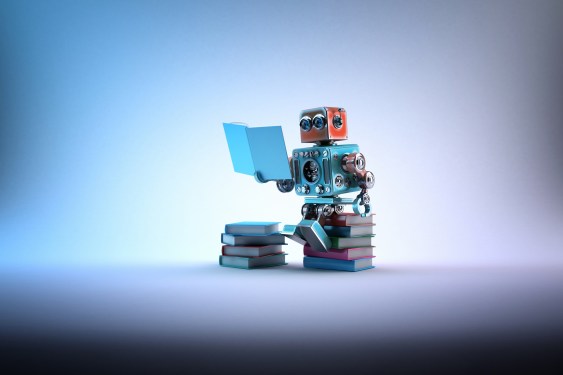Posted: 11:26 AM PDT · October 19, 2024
In a move that highlights the growing concerns surrounding the use of copyrighted material to train artificial intelligence (AI) models, Penguin Random House has decided to add an AI warning to its books’ copyright pages. This development comes as multiple lawsuits are being fought over the issue of using copyrighted content for training AI.
The New Statement in Copyright Pages
As reported by The Bookseller, new books and reprints of older titles from Penguin Random House will now include the following statement on their copyright pages:
No part of this book may be used or reproduced in any manner for the purpose of training artificial intelligence technologies or systems.
This statement is a clear indication that Penguin Random House is taking a strong stance against the use of its books to train AI models. By including this language, the publisher is setting a precedent that other major publishers may soon follow.
A Growing Concern: Using Copyrighted Material for AI Training
The use of copyrighted material to train AI models has been a contentious issue in recent times. With the rise of generative AI and its numerous applications, there is growing concern about the potential misuse of copyrighted content. The fact that multiple lawsuits are being fought over this issue highlights the complexity and sensitivity surrounding this topic.
While Penguin Random House’s move may seem drastic to some, it’s essential to note that the publisher is not entirely opposed to using AI in book publishing. In August, they outlined an initial approach to generative AI, which includes using these tools "selectively and responsibly" where there is a clear case for their benefit.
Penguin Random House’s Approach to Generative AI
In a statement outlining its approach to generative AI, Penguin Random House emphasized the need to balance the benefits of using AI with the protection of intellectual property rights. The publisher stated that it will "vigorously defend the intellectual property that belongs to our authors and artists" while also exploring ways to use generative AI tools responsibly.
This stance highlights a crucial aspect of the debate surrounding AI in book publishing: finding a balance between innovation and intellectual property protection. As the industry continues to evolve, publishers must navigate this delicate balance to ensure that their content remains protected while still allowing for responsible use of AI technologies.
The Future of Book Publishing and AI
As the landscape of book publishing continues to shift with the rise of generative AI, it’s essential for publishers to consider the implications of using copyrighted material for training AI models. By setting a clear precedent with its new copyright page statement, Penguin Random House is taking a proactive approach to addressing this issue.
The publisher’s decision sends a strong message that it will not tolerate the misuse of its content for training AI. This move may encourage other major publishers to follow suit and establish clearer guidelines for using copyrighted material in conjunction with AI technologies.
Conclusion
Penguin Random House’s decision to add an AI warning to its books’ copyright pages marks an important development in the ongoing debate surrounding the use of copyrighted material for training AI models. As the industry grapples with this complex issue, it’s essential for publishers to consider the implications of their actions and find a balance between innovation and intellectual property protection.
By taking a proactive approach to addressing these concerns, Penguin Random House is setting a precedent that may shape the future of book publishing and AI development.

